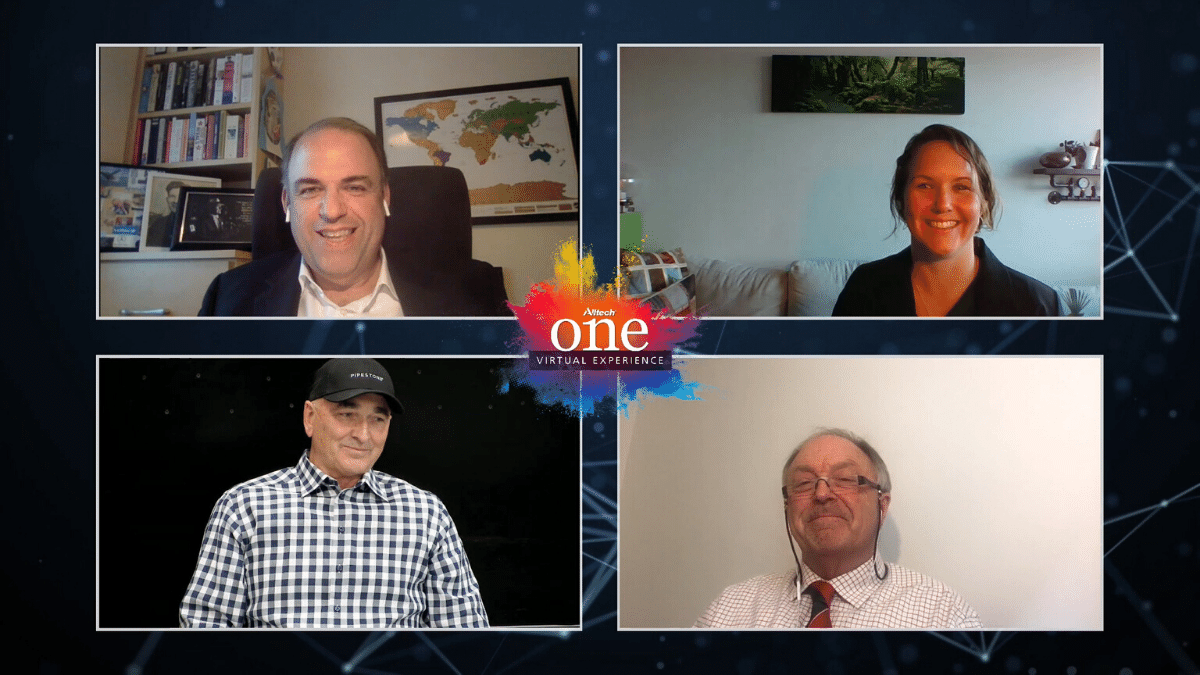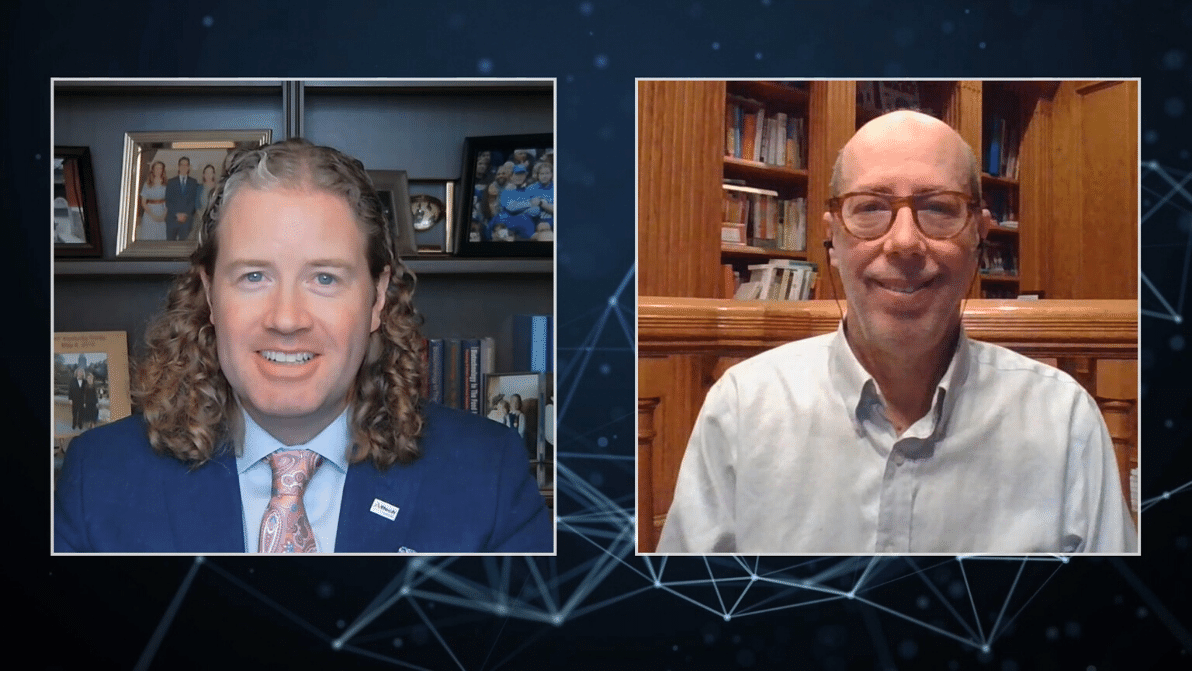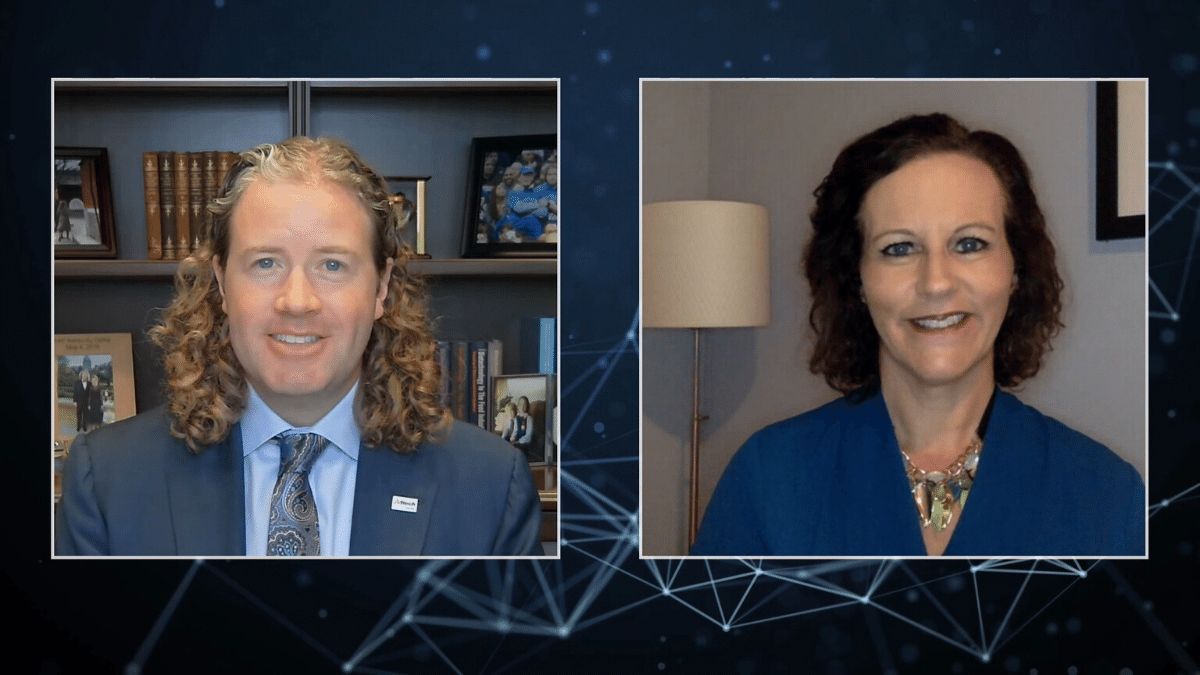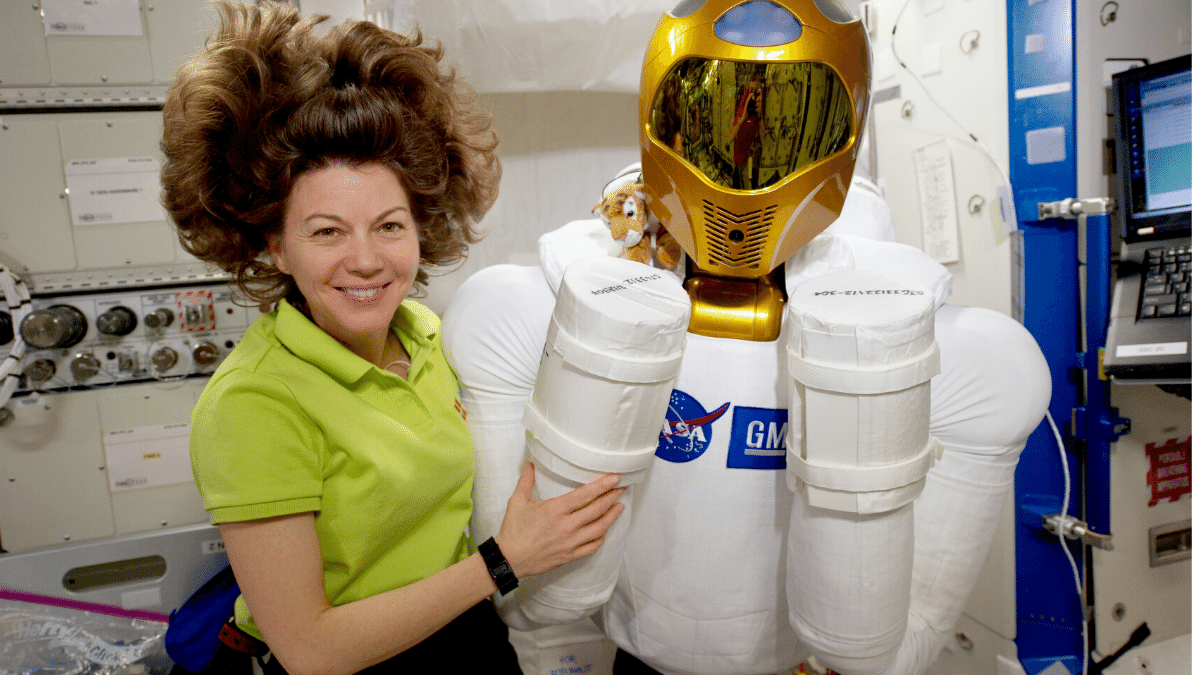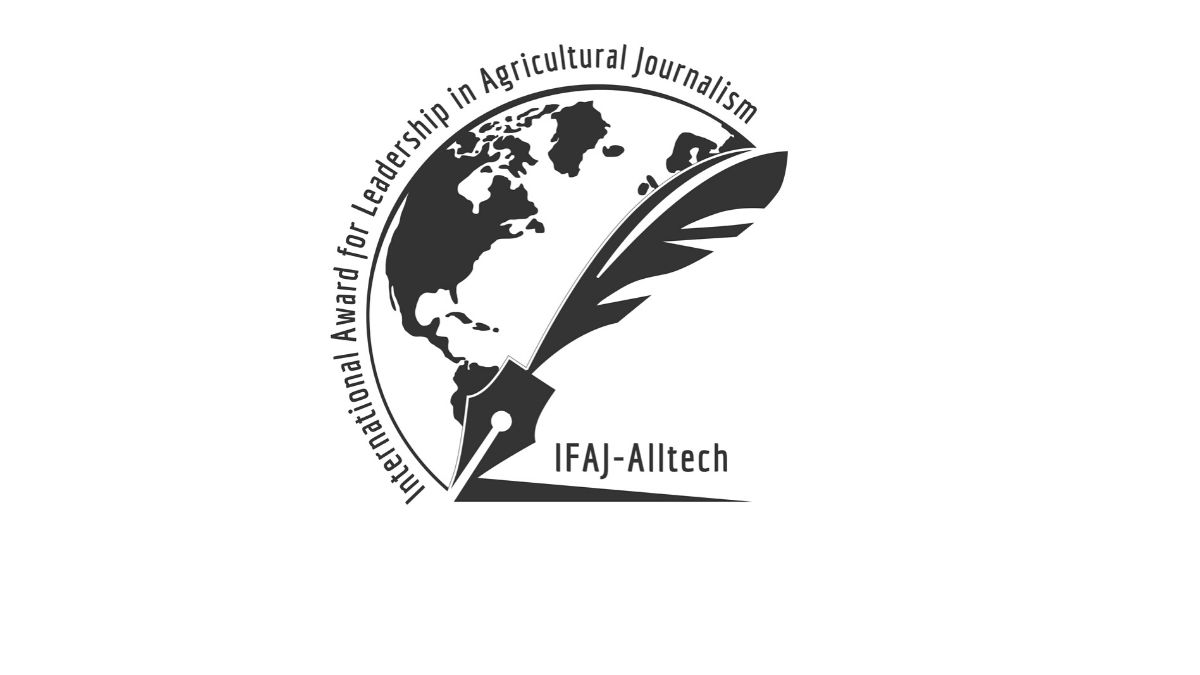Dr. Mark Lyons: Unifying for a Planet of Plenty™
Post-COVID, there will not be a “return to normal.” According to Dr. Mark Lyons, president and CEO of Alltech, now, more than ever, we must take a leap of faith and recognize that it is up to us to make positive changes in our “new normal.” COVID-19 presents monumental challenges, but also innovative opportunities, particularly in agriculture.
“We can see that ag is not a problem to be solved, but is a potential solution,” said Dr. Lyons, “and we’ve heard so many examples and so many ideas this week of ways that we can do just that.”
In his closing keynote presentation, Dr. Lyons shared his key takeaways from the launch week of the Alltech ONE Virtual Experience, which features on-demand insights from leading experts in agriculture and beyond. Many of the highlights illustrated Alltech’s Planet of Plenty™ vision of promise, possibility and positivity for the future, which centers on the belief that a world of abundance is achievable, but it will take all of us working together.
Leadership is not a title — it is action
Now is a time for leadership, both at individual companies and in the agriculture industry as a whole. However, we may need to tweak our idea of what makes a great leader.
“Leadership is not a title,” said Dr. Lyons. “Leadership, to me, is an action. You aren’t a leader because you hold a certain position or a certain role. Much as we’ve heard that love is a verb, something active, so is leadership.”
He noted that in a crisis, a leader must exemplify three traits:
1. Decision-making
2. Confidence
3. Trust in their people
There is, however, one important thing that can undermine leadership: ego.
“In a crisis, a leader must put their ego aside,” said Dr. Lyons. “We as leaders must realize that the decisions we are making are impacting so many more people and in much more profound ways during a crisis. In that regard, our personal well-being and our interests must be subjugated to the importance of others’.”
Already, we are seeing many examples of people setting aside their differences, coming together and thinking through challenges creatively. These, Dr. Lyons said, are the teams that will win in a crisis.
We must listen to the experts
An important component of Alltech’s Planet of Plenty vision is the need to listen to our experts, from farmers to scientists to economists, as well as those from many other professions. Even when we do not like the ideas that experts present, it is important that we acknowledge them.
“We need to take the time and energy to understand them and, if we agree, put a little more energy in and make sure we can communicate these ideas to a broader audience,” said Dr. Lyons. “Their insights and their ideas often hold the key to not only those new innovations, but the mere survival, at times, of our industry and our society. Making sure that we are giving time to those experts, I hope, will be a legacy of this time.”
We could be seeing a resurgence in the public’s openness to listening to experts. Their insights could make all the difference in helping us achieve a more abundant world for everyone.
Telling your story, and the story of agriculture, is critical
Trust has become the new currency of our time. Consumers are voting for brands that they trust with their money and their loyalty. Brands that showed up during COVID-19 with a strong focus on the environmental, social and governance (ESG) aspects of their businesses, from treating their employees well to sustainability, will come out ahead.
It is important to tell these often hidden and unrecognized stories of agriculture and to celebrate the unsung heroes who put food on the table for families every day — from dairy operations harnessing cow manure to generate electricity to using insects as a sustainable protein source or farming cattle and trees together.
“You, and the stories you tell, are important,” said Dr. Lyons. “Your legacy is part of this whole story, and part of what is at stake. How and why the world is different because of what you do is an important aspect of that story, and it’s possibly one of the most important things you can do.
“Sharing your story of purpose is such a powerful thing,” he continued, “not simply because it builds the understanding of others, but it also gives them the right to do the same, and to feel empowered and make a change.”
We must unify and take action, today, for the future of agriculture and our planet
“We are on a journey, a journey of sustainability, and we’ve learned this week that this is never a destination,” said Dr. Lyons. “It’s something that we will be constantly changing, as we always have.”
On this journey, the only way that we can move forward is together. Luckily, at this moment of widespread virtual networking, Dr. Lyons believes a democracy has been created and has fostered an ability to connect across all levels and positions, increasing the spread of information and ideas.
The Alltech ONE Virtual Experience illustrates this perfectly, bringing more than 23,000 attendees from 118 countries together, which is roughly seven times the number of attendees previously seen at Alltech’s annual, in-person conference in Lexington, Kentucky.
Coming together as ONE team with many ideas represents the best chance we have to make positive change.
“If we unify and we take action, we can connect with leaders, we can bring about change,” said Dr. Lyons. “If we don’t, we will look at ourselves at this time next year and say that we missed that golden opportunity. What we need right now is that unified action to make sure that we make this difference and provide for this planet in an even better way than we have in the past, and truly create that Planet of Plenty.”
Visit one.alltech.com for more information.
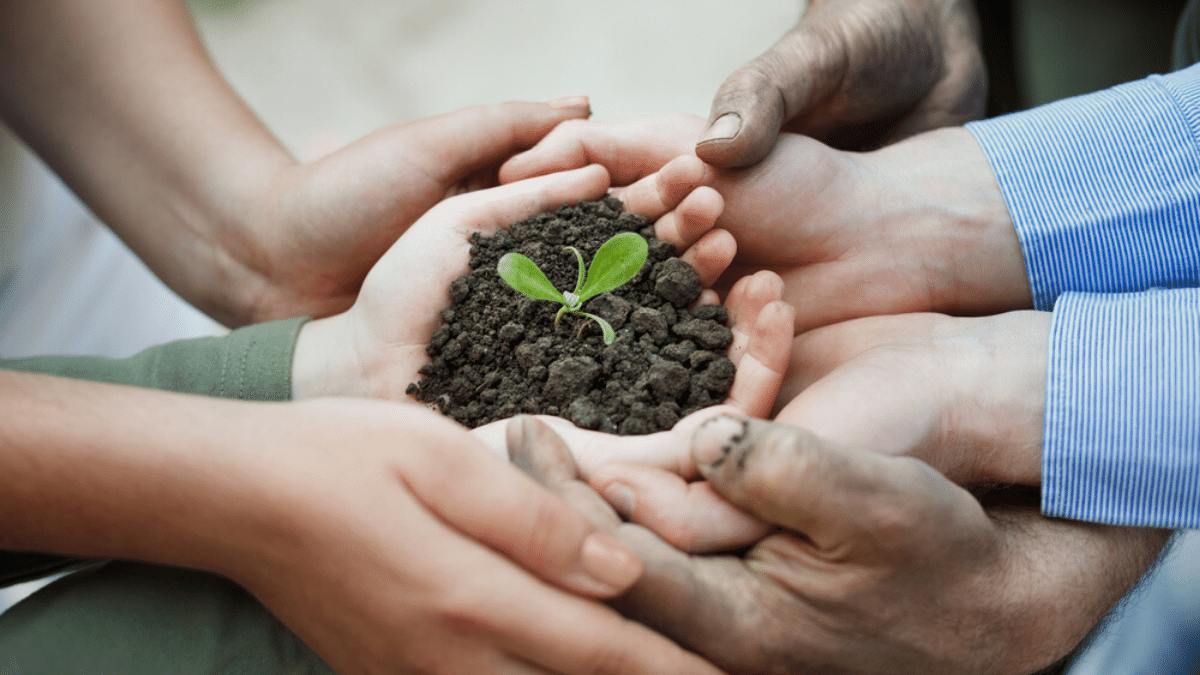
<script charset="utf-8" type="text/javascript" src="//js.hsforms.net/forms/v2-legacy.js"></script>
<![endif]--><script charset="utf-8" type="text/javascript" src="//js.hsforms.net/forms/v2.js"></script><script>
hbspt.forms.create({
portalId: "745395",
formId: "1c790526-1f39-4ebc-bf3e-71b9c86fea92"
});
</script>
On this journey, the only way that we can move forward is together. Luckily, at this moment of widespread virtual networking, Dr. Lyons believes a democracy has been created and has fostered an ability to connect across all levels and positions, increasing the spread of information and ideas.













